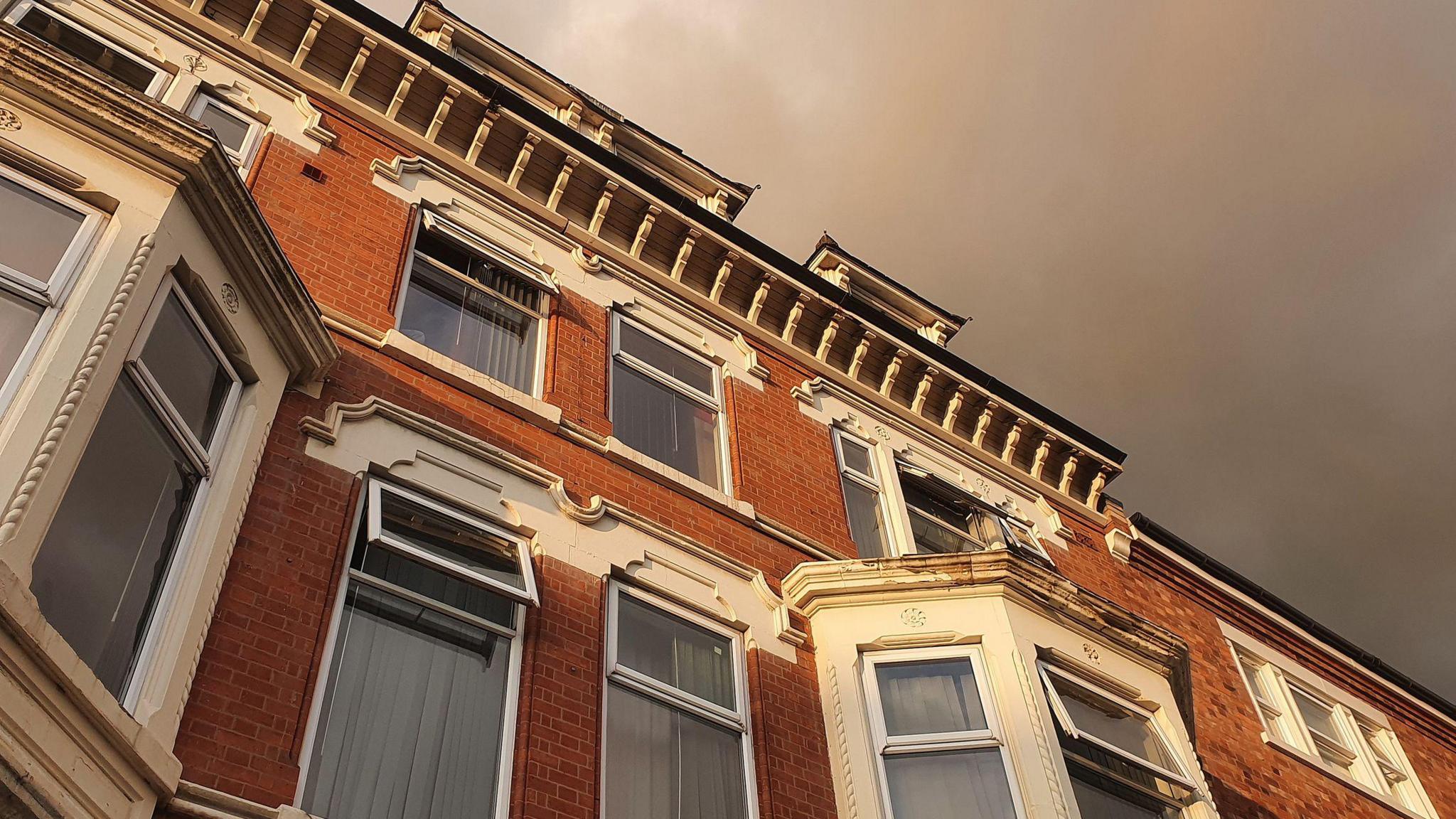Mortgage rates cut but borrowing pressures remain

- Published
Several lenders are reducing their interest rates on new fixed mortgages on Friday, offering a glimmer of hope to hard-pressed borrowers.
Barclays, HSBC and TSB will cut rates slightly on new deals, but applicants still face much higher costs than many have become accustomed to.
New figures show that more people have been struggling to make repayments. The number of homeowners facing the first stage of the home repossession process has risen.
The effect is also being felt by tenants, charities say, as financially-squeezed landlords step up no-fault evictions.
Interest rate uncertainty
The interest rate on a fixed mortgage does not change until the deal expires, usually after two or five years, and a new one is chosen to replace it. Doing nothing would leave people on a variable rate, which is very expensive.
About 1.6 million existing borrowers have relatively cheap fixed-rate deals expiring this year.
Lenders have made frequent changes to the interest rates on new deals, as their own funding costs have shifted.
Uncertainty over when, and how often, the Bank of England will cut its benchmark rate has led to the numerous changes.
However, expectations have risen of a rate cut by the Bank in June, which may now be reflected in mortgage rates.
Surge in ultra-long mortgages among under-30s
- Published13 May 2024
'Buying a first home is harder when you're single'
- Published28 April 2024
However, the pressure on homeowners to make higher repayments - at a time when other bills and prices have risen - is shown in new data.
Mortgage possession claims by lenders, which is the first stage of the repossession process, rose by 28% in England and Wales in the first three months of the year compared with the same period a year earlier.
This is the highest level since 2019, according to the Ministry of Justice figures.
Many of these cases will not result in a home being repossessed, and the actual numbers remain very low compared with previous periods of high interest rates.
There were 5,182 possession claims in the first quarter of the year, and only 759 repossessions - a 4% rise on a year ago.
Lenders have been keen to keep people in their homes to avoid the costly repossession process. They have also been told by the courts that repossession must only be used as a last resort.
Crunch for renters
Landlords have also faced increased costs from higher mortgage rates, and possession claims against landlords have been rising.
Housing charity Shelter also said the Ministry of Justice numbers showed more tenants were facing no-fault evictions in England.
There were 7,863 no-fault eviction proceedings started in the first three months of the year, it said.
The Law Society, which represents solicitors, called on the government to extend legal aid, which helps people going to court with the cost of legal advice.
Its president, Nick Emmerson, said: “We are concerned about the number of people who are at risk of becoming homeless.
“With the cost-of-living crisis and high interest rates, many are struggling with rent and mortgage payments and are at risk of losing their homes. More often than not, legal aid is their only hope but it remains out of reach."

Ways to make your mortgage more affordable
Make overpayments. If you still have some time on a low fixed-rate deal, you might be able to pay more now to save later.
Move to an interest-only mortgage. It can keep your monthly payments affordable although you won't be paying off the debt accrued when purchasing your house.
Extend the life of your mortgage. The typical mortgage term is 25 years, but 30 and even 40-year terms are now available.